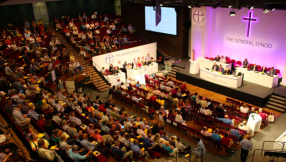Report shows ethical spending on the rise
The report showed that in 2006 British households spent an average of £664 on ethical goods, an increase of 81% on the £336 spent in 2002.
The ethical economy is now worth £32.3 billion per year, up 9% from 2005, reports the BBC. However, the amount spent on ethical goods is still just a fraction of the £600 billion of annual consumer spending.
The report revealed that only 6% of UK adults shop for ethical products and services on a weekly basis.
Ethical food and drink saw the biggest rise jumping from £4.1 billion to £4.8 billion. On average households spent £190 on ethical food and drink and Fairtrade products.
Simon Williams, director of corporate affairs at the Co-operative Bank, was quoted by the BBC as saying, "The market share for ethical food and drink appears to have broken through the 'green' glass ceiling of 5%."
He continued, "Potentially we could see market share hit 10% in the next year or two."
However the jump in ethically produced clothing, combined with cheaper clothes on the High Street and the internet led to a drop in the number of shoppers visiting charity shops where sales fell 13%.
The report said that consumers perceive low cost clothing outlets as indicating poor labour conditions.
Spending on renewable energy in the face of climate change has also increased, with average household spending on home products like energy efficient light bulbs going up to £213 per year. Households also spend an average of £6 on renewable energy per year.













